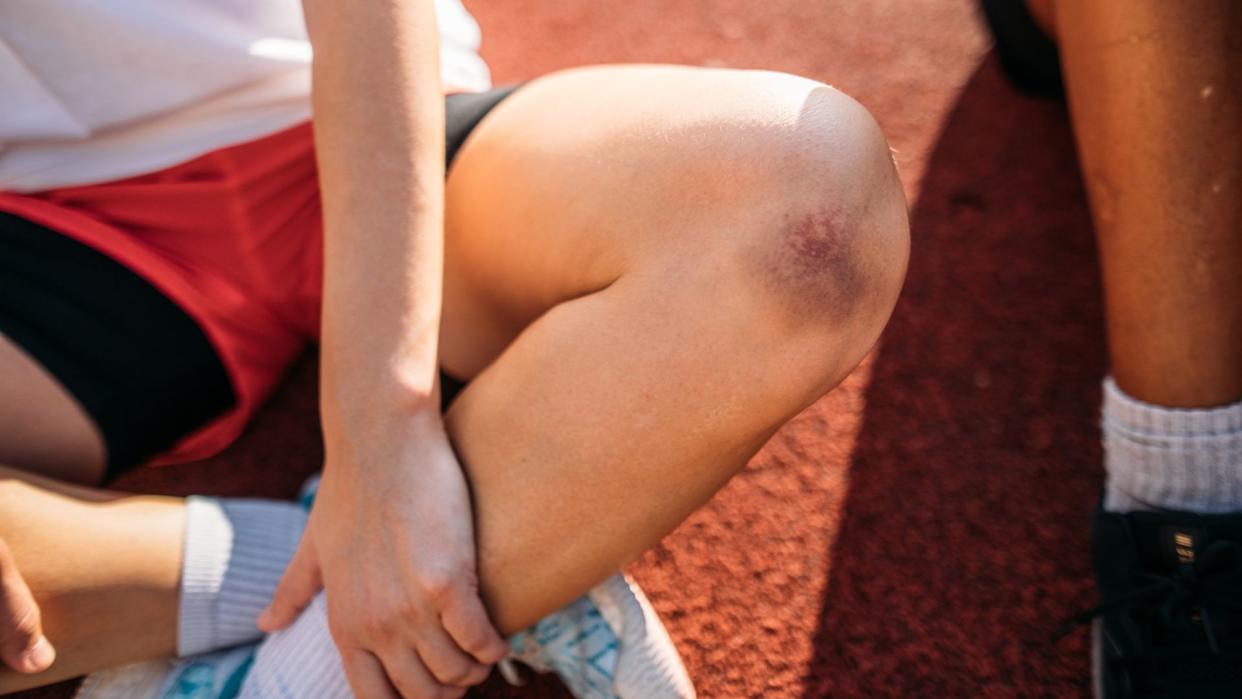What causes bruising?

Bumping your hip into the corner of a table or hitting your head on a low ceiling can leave you with a bruise, but the cause of bruising is sometimes less obvious — in fact, some people are more prone to bruising than others, and in rare cases, their bruises seem to appear for no reason at all.
So what, exactly, causes a bruise?
A bruise, known as a "contusion" in medical speak, is the body's response to blood-vessel injuries. Bruises that are not caused by blunt force or trauma to the body can be an indication of an underlying health condition, such as a blood disorder, Terry Foster, a critical-care clinical nurse specialist and the 2023 president of the Emergency Nurses Association, told Live Science by email. For this reason, those who develop mystery bruises should be evaluated by a health care professional, he said.
Bruises appear when an injury leaves the skin intact but damages the small blood vessels that lie beneath, causing the vessels to leak blood into the surrounding tissues, according to the National Library of Medicine's medical resource MedlinePlus. Even once the bleeding itself stops, the blood that has already flowed out gets trapped under the skin. These patches of pooled blood initially look reddish, and they later turn bluish-purple and greenish-yellow, although bruises' appearances can vary with people's skin tones.
Related: If blood is red, why do veins look bluish?
A bruise changes color due to the components in the pooled blood breaking down, Foster said.
Blood gets its color from hemoglobin, the protein that carries oxygen in red blood cells in the bloodstream. On its own, hemoglobin is dark red, but its color changes when it binds certain molecules. For example, hemoglobin is bright red when it carries oxygen but turns cherry-red when it transports the waste gas carbon dioxide.
When a bruise forms and blood from the damaged blood vessels flows into nearby tissues, the hemoglobin in the blood begins to drop its oxygen and capture carbon dioxide instead. The hemoglobin itself then begins to break down, first transforming into a dark-brown form of the protein called methemoglobin and then into yellow pigments called biliverdin and bilirubin, according to a 2021 review published in the journal Heliyon.
Bruises generally fade within two weeks, but occasionally, they can last longer than a month, according to MedlinePlus.
Besides physical injury or trauma, bruises can happen for a number of other reasons. These include allergic reactions or blood-clotting conditions, according to MedlinePlus. These conditions include thrombocytopenia, in which a person has a low level of platelets, the cells that form blood clots; the condition can be inherited or acquired through chemical exposures, alcohol use, certain medications, or as an effect of other health conditions.
RELATED STORIES
—Why are paper cuts so painful?
—Weird green bruise on woman's hand turns out to be rare tumor
—Why are some people's veins 'hard to find'?
"Individuals on certain types of medications might also be more prone to bruising not directly caused by injury," Foster noted. Some medications — such as over-the-counter painkillers, like aspirin and ibuprofen, and blood-thinning medications, including warfarin — raise the risk of bruising by decreasing the blood's ability to clot. Certain antibiotics, antidepressants and dietary supplements, such as ginkgo biloba, can also contribute to blood-clotting problems, according to Mayo Clinic.
Thankfully, most minor bruises resolve on their own and don't pose a significant risk to someone's health — but they may just serve as a reminder to be careful around the pointy furniture in your home.
This article is for informational purposes only and is not meant to offer medical advice.
Ever wonder why some people build muscle more easily than others or why freckles come out in the sun? Send us your questions about how the human body works to community@livescience.com with the subject line "Health Desk Q," and you may see your question answered on the website!

